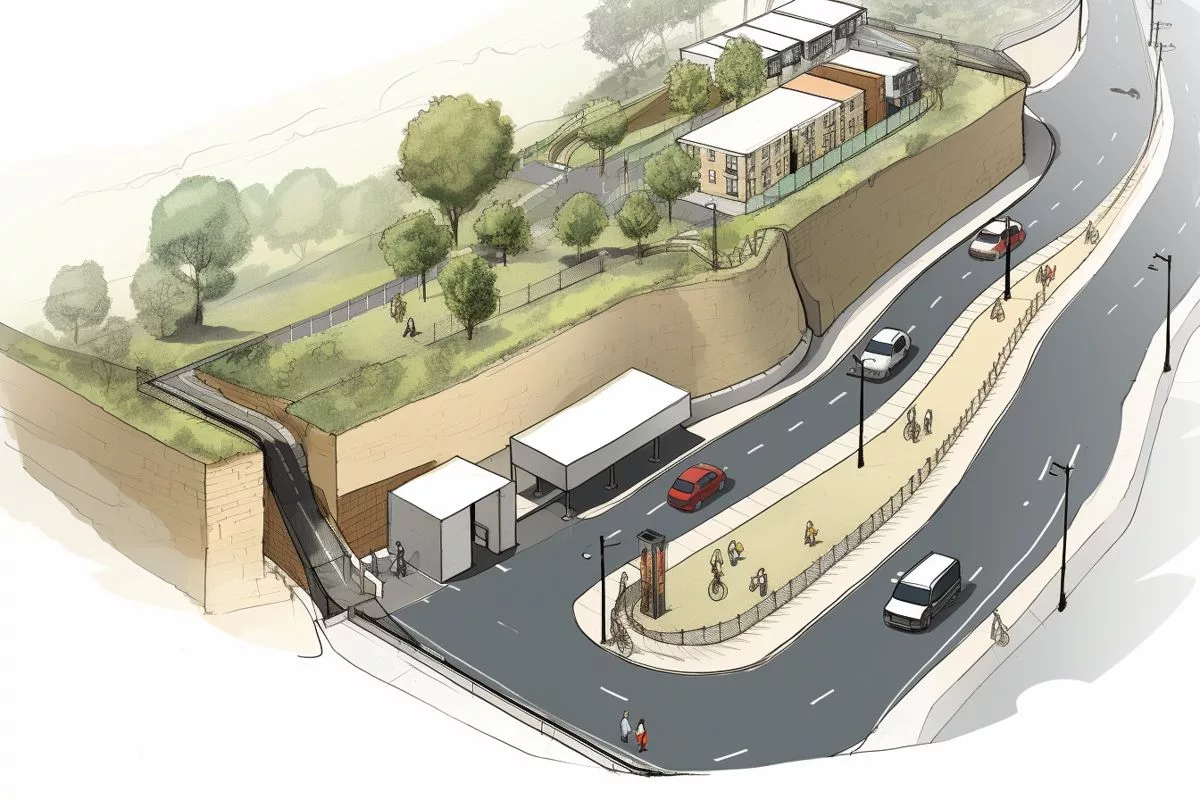Cape Town is engaging its residents in co-creating a new Traffic Calming Policy and Road Safety Strategy to enhance road safety in the city. The Urban Mobility Portfolio Committee is utilizing the Collaboration Platform and Subcouncils to collect ideas and recommendations from residents and stakeholders, with multiple channels for idea submissions provided. This inclusive approach shows the City’s commitment to involving its residents in the policymaking process, fostering a safer environment for all who travel its roads.
How is Cape Town engaging the community to enhance road safety?
The City’s Urban Mobility Portfolio Committee is involving residents in co-creating a new Traffic Calming Policy and Road Safety Strategy. The Portfolio Committee has utilized the Collaboration Platform and Subcouncils to collect ideas and recommendations from residents and stakeholders, empowering the people of Cape Town to influence the directorate’s efforts in improving road safety. The City has provided multiple channels for idea submissions, including physical idea forms and online submissions.
A Collective Effort to Address Road Safety Concerns
Cape Town, a bustling city renowned for its dynamic culture and stunning landscapes, is grappling with a serious problem – treacherous roads leading to devastating accidents. Realizing the necessity for a comprehensive solution, the City’s Urban Mobility Portfolio Committee aims to involve residents in co-creating a new Traffic Calming Policy and Road Safety Strategy.
Over 700 lives are lost, and 7,000 injuries occur on Cape Town’s roads annually, prompting city authorities to take action to reduce these distressing figures. The Urban Mobility Portfolio Committee is presently examining the City of Cape Town’s Road Safety Strategy and Traffic Calming Policy, with the goal of enhancing safety for all road users.
In a groundbreaking approach to policy development, the Portfolio Committee has utilized the City’s Collaboration Platform and Subcouncils to collect ideas and recommendations from residents and stakeholders. This inclusive technique allows for early engagement, empowering the people of Cape Town to influence the directorate’s efforts in improving road safety. City Council Chairperson Councillor Mikhail Manuel believes that such significant public engagement can yield innovative solutions.
Encouraging Public Participation in Policy Development
After this initial stage, a formal public participation process will occur as required after the development of the draft Traffic Calming Policy and draft Road Safety Strategy. Councillor Rob Quintas, the City’s Mayoral Committee Member for Urban Mobility, emphasizes the Urban Mobility Directorate’s dedication to transparent and innovative governance, ensuring the inclusion of all road users in promoting safety on the city’s roads.
The City has identified critical areas where it seeks input from the public, including road safety for pedestrians, non-motorized transport users, passengers, and public transport users, with particular emphasis on scholars. To promote diverse participation, multiple channels for idea submissions have been provided, including the City’s Collaboration Platform, libraries, and City facilities with Smart Cape terminals, as well as physical idea forms at Subcouncil offices.
Councillor Manuel encourages residents to watch for alerts from their Subcouncil offices to engage with the policy development team. The Road Safety Call for Ideas campaign will run until December 10, 2023, and submissions can be made online at www.capetown.gov.za/collaborate or via email at roadsafetyCT@capetown.gov.za.
Collaboration and Innovation for a Safer Cape Town
This cooperative approach to addressing road safety demonstrates the City’s commitment to involving its residents in the policymaking process. By welcoming the public’s ideas, the City of Cape Town aspires to develop a comprehensive and effective Traffic Calming Policy and Road Safety Strategy that caters to the needs of all road users.
The remarkable efforts of the Urban Mobility Portfolio Committee and the City’s authorities show that a united front can lead to improved safety on Cape Town’s streets. In an era where innovation and collaboration are crucial, it is through the collective wisdom of its residents that the City can foster a safer environment for all who travel its roads.
The success of this initiative will not only contribute to a safer Cape Town but also serve as an inspiring example for other cities around the globe. By giving its residents a voice and including them in the decision-making process, Cape Town is setting the stage for a more inclusive and effective approach to urban planning and safety. Indeed, it is through the power of collaboration and innovative thinking that the future of our cities can be shaped for the better.
1. What is Cape Town’s goal in engaging the community to enhance road safety?
Cape Town’s goal is to involve its residents in co-creating a new Traffic Calming Policy and Road Safety Strategy to enhance road safety in the city.
2. What is the role of the Urban Mobility Portfolio Committee in this initiative?
The Urban Mobility Portfolio Committee is responsible for involving residents in policy development by utilizing the Collaboration Platform and Subcouncils to collect ideas and recommendations from residents and stakeholders.
3. What are the critical areas identified by Cape Town for public input?
Cape Town seeks input from the public on road safety for pedestrians, non-motorized transport users, passengers, and public transport users, with particular emphasis on scholars.
4. How long will the Road Safety Call for Ideas campaign run?
The campaign will run until December 10, 2023.
5. What channels are available for idea submissions?
Multiple channels for idea submissions have been provided, including the City’s Collaboration Platform, libraries, and City facilities with Smart Cape terminals, as well as physical idea forms at Subcouncil offices.
6. What is the next step after the initial stage of collecting ideas and recommendations?
After the initial stage, a formal public participation process will occur as required after the development of the draft Traffic Calming Policy and draft Road Safety Strategy.
7. Who can residents contact to engage with the policy development team?
Residents can watch for alerts from their Subcouncil offices to engage with the policy development team.
8. Why is this initiative important for the future of urban planning and safety?
This initiative sets the stage for a more inclusive and effective approach to urban planning and safety by giving residents a voice and including them in the decision-making process. It demonstrates how collaboration and innovative thinking can lead to a safer environment for all who travel on the city’s roads.








